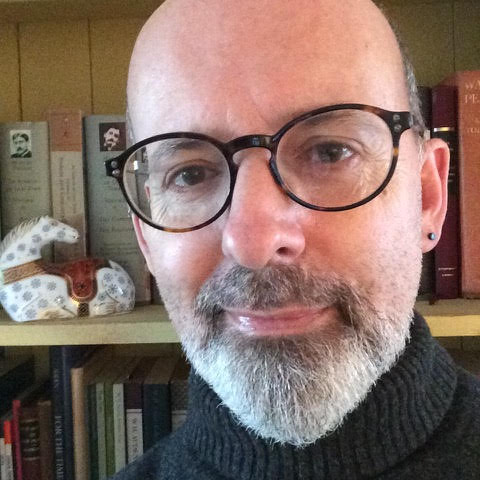Interview conducted by Adrineh Der-Boghossian.
A career as an editor is often a solo adventure, especially if you’re a freelancer. So we thought one way to better connect with fellow editors was to ask them the Five Ws: who, what, where, when, and why. Read on for some thought-provoking, enlightening tidbits from those of us who choose to work with words to earn our keep.

Please tell us a little about yourself, the kind of work you do (and where you live), and how long you’ve been an editor.
I live in Montreal, and I’m a freelancer. I do primarily copy editing, with some proofreading, substantive editing, and translation (French to English) thrown into the mix. I began editing in-house in London, England, in 1991, for Penguin Books. I’ve been a freelancer in the Canadian publishing industry for almost 25 years. I also write and perform spoken word poetry and theatrical monologues.
Who: If you could edit one famous author, living or dead, who would it be?
Aldous Huxley. The reason for this is that (1) he’s a hero of mine for his ideas and general erudition, and (2) his novels really need an editor! So, as well as getting to meet him, I think I could have helped him make his novels a bit more dynamic and his characters speak more like human beings rather than animated intelligences.
What: Do you have a favourite punctuation mark and/or a favourite word?
I do like semicolons, because (when used properly) they imply an ability to think in complex ways. I don’t really have a single favourite word, but in an editing context I could pick the word ambiguous. I actually think ambiguity is a nice quality in real life; it suggests complexity (like a semicolon, in fact). But in writing, being ambiguous is usually not intentional, so it’s a word I pull out when I want to let a writer know that, beautiful as their words may be, they’re not translating into clear, unambiguous meaning. And most writers don’t want to leave the meaning of their words for readers to have to decipher.
Where: If you could work anywhere in the world as an editor, where would that be?
One of the positive aspects of being a freelance editor is the ability to work anywhere, geographically speaking, even if this isn’t something I’ve taken a lot of advantage of. I can’t work on a beach or in a café; I need to be quiet and focused. So where I am in the world doesn’t really matter that much, because I always end up doing my work in a quiet room with minimal distractions, wherever I am. In terms of the vibrancy of the literary community, though, I’d choose London, where I started out.
When: Was there ever a time in your life when you seriously questioned your career choice?
It wasn’t really a career choice. It crept up on me. I regularly ask myself if I’m living the life I want or the life that happened to me, and I keep coming up with the answer that the life that happened to me is the life I want.
Why: Why did you choose to become an editor? Or, should we ask: Why did editing choose you?
This may not be the most original answer, but I simply love reading. As a child, reading was the thing that opened up the possibility of the world being larger than what I was seeing around me, and that passion for losing myself in the written word has never left me.
And, of course, we just had to ask the inevitable how: How would you sum up your motto?
As an editor, my motto would be Do no harm (same as a medical doctor). If your editorial interventions are creating prolixity, drawing attention to themselves, or interfering with the author’s voice, just STOP and make a cup of tea. An editor’s only raison d’être is to improve the text. If what you’re doing isn’t making it better, then have the strength of character to do nothing.
Adrineh Der-Boghossian is the editor-in-chief of BoldFace.
This article was copy edited by Ann Kennedy.
